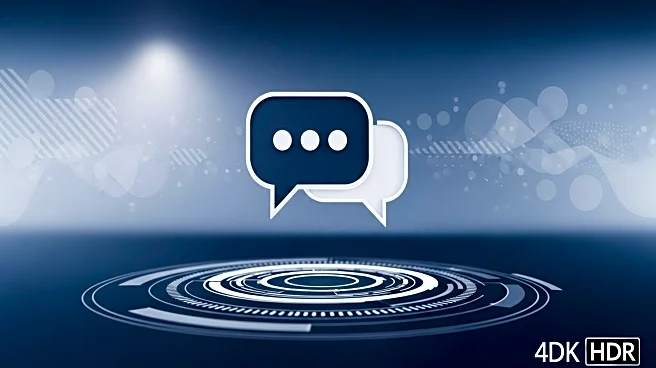What's Happening?
ChatGPT, an AI chatbot developed by OpenAI, has become increasingly integrated into daily life since its release in 2022. It offers functionalities such as answering questions, summarizing text, coding, and translating languages. Users can access ChatGPT via its website or mobile app, with options for free or premium memberships. The tool is based on a large language model, which can sometimes produce errors or biases. Users are advised to fact-check information provided by ChatGPT and use it as a complement to traditional research methods.
Why It's Important?
The widespread adoption of ChatGPT highlights the growing influence of AI in various sectors, including business, education, and personal productivity. It offers new ways to streamline tasks and enhance efficiency, potentially reducing costs and improving decision-making processes. However, the reliance on AI tools also raises concerns about data privacy and the accuracy of information. As AI continues to evolve, it is crucial for users to maintain a balanced approach and critically evaluate the outputs of such technologies.
Beyond the Headlines
The integration of AI tools like ChatGPT into everyday activities may lead to broader ethical and societal implications. Issues such as data security, intellectual property rights, and the potential for AI to replace human jobs are areas of ongoing debate. Additionally, the lawsuit filed by Ziff Davis against OpenAI for copyright infringement underscores the legal challenges associated with AI development and usage. As AI technology advances, stakeholders must address these concerns to ensure responsible and equitable use.









